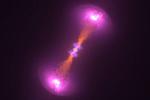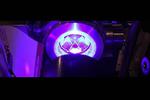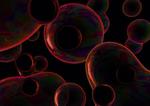Other

“An international team of scientists have discovered an unusual Jupiter-sized planet orbiting a low-mass star located in the Corvus constellation. An international team of scientists have discovered an unusual Jupiter-sized planet orbiting a low-mass star called TOI-4860, located in …

“Astronomers have determined the source of an incredibly bright X-ray, optical and radio signal appearing from halfway across the Universe. The signal, named AT 2022cmc, was discovered earlier this year by the Zwicky Transient Facility in California. Findings published today …

“An international research team has announced the discovery of two “super-Earth” planets orbiting a star 100 light-years from Earth. The team, which includes astronomers at the University of Birmingham detected the planets orbiting LP 890-9, a small, cool star located …
News Looking inside a neutron star – new model will improve insights gleaned from gravitational waves

“The oscillations in binary neutron stars before they merge could have big implications for the insights scientists can glean from gravitational wave detection. Researchers at the University of Birmingham have demonstrated the way in which these unique vibrations, caused by …

“Quantum clocks are shrinking, thanks to new technologies developed at the University of Birmingham-led UK Quantum Technology Hub Sensors and Timing. Working in collaboration with and partly funded by the UK’s Defence Science and Technology Laboratory (Dstl), a team …

“A new concept has been developed that has the potential to assist new instruments in the investigation of fundamental science topics such as gravitational waves and dark matter. The concept is described in a paper written by UK Quantum Technology …

“Scientists at the University of Birmingham have succeeded in creating an experimental model of an elusive kind of fundamental particle called a skyrmion in a beam of light. The breakthrough provides physicists with a real system demonstrating the behaviour of …

“New methods of detecting ultra-low frequency gravitational waves can be combined with other, less sensitive measurements to deliver fresh insights into the early development of our universe, according to researchers at the University of Birmingham. Gravitational waves - ripples in the …

“Nanomaterials found in consumer and health-care products can pass from the bloodstream to the brain side of a blood-brain barrier model with varying ease depending on their shape – creating potential neurological impacts that could be both positive and negative, a …

“Two gravitational wave signals from an entirely new class of cosmic collisions have been discovered by researchers working on the Advanced LIGO and Advanced Virgo detectors. Each of the signals came from the merger of a black hole with a …

